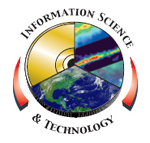
Please Note: The content on this page is not maintained after the colloquium event is completed. As such, some links may no longer be functional.
Daniel Cohen
Digital History: A Guide to Gathering, Preserving, and Presenting the Past on the Web
Wednesday, April 11, 2007
Building 3 Auditorium - 3:30 PM
(Refreshments at 3:00 PM)
Not so long ago the record of science consisted of lab notebooks, letters, and paper publications. Now that record has become almost entirely digital, residing on personal computers, servers, and countless forms of digital media. This transition has been enormously advantageous to today's scientists, since it is far easier to share,
communicate, and collaborate via computers. Yet the rise of the digital
age has also brought about the specter of a "digital dark age"--the
inability of future researchers to access today's materials--because
digital materials are extremely fragile and difficult to preserve. It
is not only easy to inadvertently delete or corrupt digital materials,
but they also require specific hardware and software, and in some
cases, passwords and other access conditions, to be viewed. What can we
do today to ensure that those in the future have access to our age's
enormous production of scientific knowledge?
Daniel J. Cohen is an Assistant Professor in the Department of History
and Art History at George Mason University and the Director of Research
Projects at the Center for History and New Media. He is the author of
Equations from God: Pure Mathematics and Victorian Faith (Johns Hopkins
University Press, 2007), co-author of Digital
History: A Guide to Gathering, Preserving, and Presenting the Past on
the Web (University of Pennsylvania Press, 2005), and has published
articles and book chapters on the history of mathematics and religion,
the teaching of history, and the future of history in a digital age in
journals such as the Journal of American History, the Chronicle of
Higher Education, and Rethinking History. He is an inaugural recipient
of the American Council of Learned Societies'
Digital Innovation Fellowship.
IS&T Colloquium Committee Host: Ben Kobler
